Android vs. iOS: Which One Is for You?
Choosing between Android and iOS is one of the most important decisions you’ll make when buying a smartphone. It’s not just about the device—it’s about your digital lifestyle, how you interact with apps, manage privacy, and even how you communicate.
In this guide, we’ll break down the key differences between Android and iOS to help you decide which mobile operating system is the right fit for your needs.
Android vs. iOS: The Core Philosophy
At their core, Android and iOS are based on very different philosophies:
- Android, developed by Google, is open-source and built for flexibility and customization.
- iOS, developed by Apple, is closed-source and built for simplicity, security, and a seamless ecosystem.
“iOS is about control and smooth experience, while Android is about freedom and adaptability.”
This foundational difference impacts everything—from how apps are managed to how you use your phone every day.
Hardware and Device Options
Android: More Variety, More Price Points
With Android, you get access to a huge range of devices from brands like Samsung, Google Pixel, OnePlus, and Xiaomi. Whether you’re on a tight budget or looking for a premium flagship phone, there’s an Android for you.
Pros:
- Affordable to premium models
- Foldable phones, large screens, custom features
- More innovation in hardware
iOS: Premium, Unified Experience
Apple only offers iOS on iPhones, and every iPhone is designed to work perfectly with iOS. While this limits your choices, it guarantees consistency and performance optimization.
Pros:
- High build quality
- Long-term software support
- Seamless integration with other Apple devices
Customization and Interface
Android: Highly Customizable
Android users can:
- Change launchers
- Use widgets extensively
- Rearrange or remove app icons
- Customize fonts, animations, and more
It’s perfect for those who love to tweak and personalize their device.
iOS: Minimalist and Consistent
iOS offers fewer customization options, but it provides a clean, user-friendly interface with consistent app behavior.
Recent iOS versions have added more flexibility, such as custom widgets and app library features—but Android still leads in this area.
App Ecosystem and Store Experience
Both platforms offer millions of apps—but the quality control and experience differ.
iOS App Store:
- Strict app review process
- Higher security standards
- Better optimization for iPhones
Google Play Store:
- More app diversity
- Faster publishing for developers
- Greater risk of low-quality or malicious apps (though Google Play Protect helps mitigate this)
Developers often release apps on iOS first, as it’s more profitable per user. However, Android has caught up in most areas.
Privacy and Security
iOS: Security First
Apple puts privacy at the forefront. With features like App Tracking Transparency, Mail Privacy Protection, and on-device processing, iOS is considered more secure.
Learn more about Apple’s privacy measures.
Android: Getting Better, But Still Behind
Google has improved privacy and security, especially with newer Android versions and Google Play Protect. But due to its open nature and broader device ecosystem, Android is more vulnerable to security threats.
Integration with Other Devices
If you own other Apple devices like a MacBook, iPad, or Apple Watch, iOS offers unmatched integration:
- Airdrop for file sharing
- Handoff for continuing tasks across devices
- iMessage and FaceTime on all Apple devices
Android, on the other hand, integrates well with Google services (Gmail, Google Photos, Chrome, etc.) and is becoming more device-aware with Android Auto, Chromebooks, and the upcoming Nearby Share for Windows.
Voice Assistants: Google Assistant vs. Siri
- Google Assistant is smarter, more conversational, and better at understanding context. It integrates deeply with Google services.
- Siri is polished but more limited, though it works excellently within the Apple ecosystem.
Software Updates
- iOS devices get updates simultaneously for 5+ years across most devices.
- Android updates vary by manufacturer. Pixel phones receive the most consistent and timely updates, while others may lag or limit updates to 2–3 years.
So… Android or iOS?
Choose Android if you want:
- Device variety and price flexibility
- Customization freedom
- Better Google service integration
- Innovative hardware (foldables, high refresh rates)
Choose iOS if you want:
- Better privacy and security
- Seamless Apple ecosystem
- Long-term software support
- A smoother, simpler experience
Conclusion: It Depends on YOU
Ultimately, the choice comes down to your priorities. If you value flexibility, innovation, and affordability, Android may be your best bet. If you prioritize privacy, consistency, and ecosystem synergy, iOS is likely the smarter choice.
“There’s no winner—only what’s right for you.”
Try both if possible. And remember, switching isn’t as hard as it used to be—Apple’s Move to iOS and Google’s setup tools make it easier than ever to jump platforms.
Recommended Reading
Share this post:






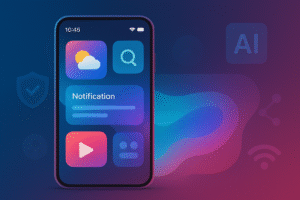

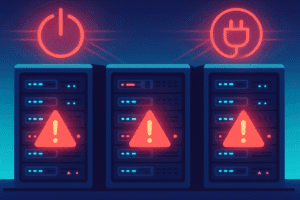
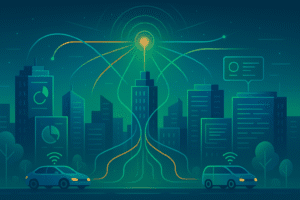
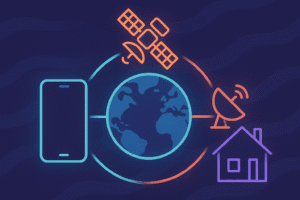

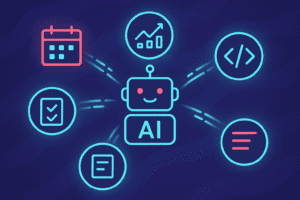

Post Comment